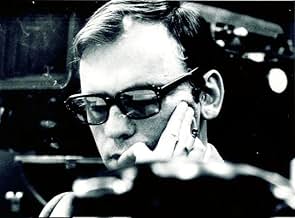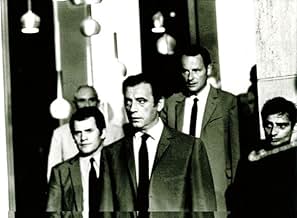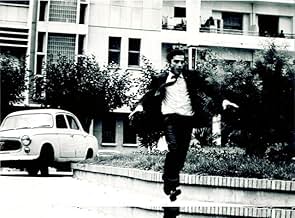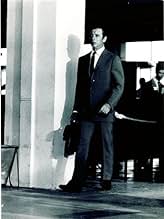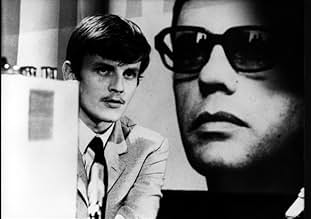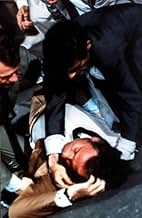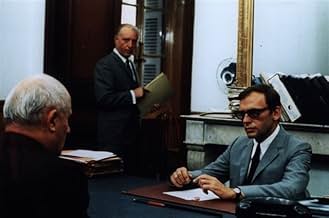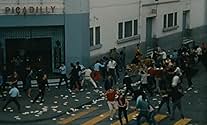Z
- 1969
- Tous publics
- 2h 7min
À la suite du meurtre d'un homme de gauche de premier plan, un enquêteur tente de révéler la vérité alors que des membres du gouvernement essaient de couvrir leur implication.À la suite du meurtre d'un homme de gauche de premier plan, un enquêteur tente de révéler la vérité alors que des membres du gouvernement essaient de couvrir leur implication.À la suite du meurtre d'un homme de gauche de premier plan, un enquêteur tente de révéler la vérité alors que des membres du gouvernement essaient de couvrir leur implication.
- Réalisation
- Scénario
- Casting principal
- Récompensé par 2 Oscars
- 12 victoires et 13 nominations au total
- Hélène
- (as Irène Papas)
- Vago
- (as Marcel Bozzufi)
- Shoula
- (as Clotilde Joanno)
Avis à la une
For those who are up to date with Greek history, the country is Greece, the city is Thessaloniki and the politician is Grigoris Lambrakis. But that is of small importance, since this is a story which could have (and possibly has) happened anywhere at any time in history.
About the film: the cinematography is excellent, even by today's standards. The acting and direction are both top class. But what impressed me the most was the film's editing. After the slow first 15-20 minutes or so, the film picks up a pace which is tight and lightning fast. The dialogue is concise and to the point - the film's last lines, spoken by the Narrator and found in the quotes section of IMDb, never fail to bring tears to my eyes. Finally, the film offers what I consider to be the best film score of all time (but I may be a bit biased on this, since the score is by Mikis Theodorakis, my personal favourite).
This kind of documentary-style film making has been done plenty of times since, especially in political thrillers. But this is what sparked everything up. Watch this film. You'll be rewarded.
My rating: 10/10
It wasn't what I expected, but turned out to be one of the best political thrillers I've ever seen. You don't really have to know Greek history to see it, in part because the movie never explicitly mentions Greece. Better to do it the other way around, by getting swept up in the gritty often tawdry intrigues you will be learning Greek history without realizing it. Or if you are into conspiracies and cover-ups in general you'll learn how they really aren't the brilliantly crafted master-plans of distant omnipotent figures that most movies show, but are usually the creation of dull mediocrities, full of flaws, stupidities, and ham-fisted improvisations. That they often succeed is more because of brute force than any innate cleverness. This is a powerful and effective movie, which is almost certainly due to its being based closely on reality and the passions that inspired it's making, and from it not being a recycled and denatured Hollywood product. I highly recommend it.
Then, the story portrayed in "Z". Dr. Gregorios Lambrakis was beginning to speak for the people, when the junta gunned him down. In "Z", we get to see the investigation into the murder, exposing how the generals orchestrated it. They never say that the movie happens in Greece (although it clearly does), and more than simply a look at the CIA-installed regime that was ruling Greece from 1967 to 1974, it's a reminder of all totalitarian governments in the world. "Z" will very likely chill you.
While Vassilikos' novel (written in 1966) has driven him to exile from 1967, Theodorakis was still in Greece under surveillance and managed to write his excellent score secretly.
Costa-Gavras gives us a top-class fast paced direction which hasn't aged even today, although I'm sure the Oscar was as much a political decision as a purely artistic one. What is truly spot-on is the casting. Both Montand and Trintignant excel, but even minor roles like Vago and Yago are portrayed in an extremely realistic way. My small objection would be Irene Papas staying near-silent throughout the movie. Although her talent allows her to pull it off with class, I really didn't understand why she was not supposed to talk.
Le saviez-vous
- AnecdotesThe actor playing the doctor got cold feet during his explanation of the X-rays of Z's cranium. A real doctor, acting as an extra, volunteered to fill in and finished the scene - his only acting performance on film.
- GaffesAfter hitting Z, Vigo and Yago escape on a three-wheeler. Shortly thereafter, the driver Yago is captured by a policeman. The policeman searches him and finds a truncheon. When the guard uses the truncheon on Yago's chest to keep him away, the stick clearly flexes.
- Citations
Françoise Bonnot, Voiceover Narration: [final lines] The military regime banned: long hair, miniskirts, Sophocles, Tolstoy, Euripides, Russian-style toasts, strikes, Aristophanes, Ionesco, Sartre, Albee, Pinter, freedom of the press, sociology, Beckett, Dostoyevsky, modern music, pop music, new math, and the letter Z, which means HE LIVES in Ancient Greek.
- Crédits fousAny resemblance to actual events, to persons living or dead, is not the result of chance. It is DELIBERATE. (Signed by) Jorge Semprún, Costa-Gavras
- ConnexionsFeatured in La solitude du chanteur de fond (1974)
- Bandes originalesMesse Pour le Temps Présent--Psyché Rock
(uncredited)
Composed and Performed by Pierre Henry
Courtesy of Philips/PolyGram Records
by arrangement with PolyGram Special Markets
© 1967 Philips Classics Productions
Meilleurs choix
- How long is Z?Alimenté par Alexa
Détails
- Date de sortie
- Pays d’origine
- Sites officiels
- Langues
- Aussi connu sous le nom de
- Z ou l'anatomie d'un assassinat politique
- Lieux de tournage
- Sociétés de production
- Voir plus de crédits d'entreprise sur IMDbPro
Box-office
- Montant brut aux États-Unis et au Canada
- 83 305 $US
- Week-end de sortie aux États-Unis et au Canada
- 10 144 $US
- 15 mars 2009
- Montant brut mondial
- 83 305 $US
Contribuer à cette page



